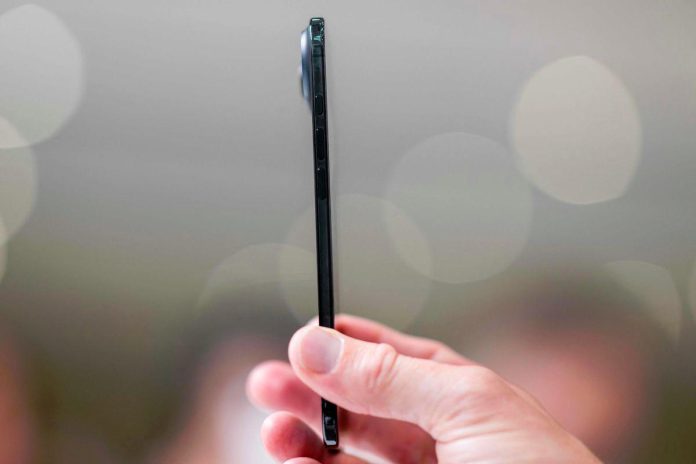SAN FRANCISCO: Apple has introduced its iPhone 17 lineup, headlined by the ultra-thin iPhone 17 Air, as the company strives to compete in the generative artificial intelligence sector.
The tech giant held its annual launch event amidst significant external pressures, including White House demands to reduce Chinese manufacturing reliance and investor scepticism about its AI readiness.
President Donald Trump’s high tariff policies have further complicated the landscape, contributing to a more than three percent drop in Apple shares since January.
Apple is banking on these new products to trigger a major upgrade cycle and reverse the trend of consumers holding onto their phones for longer periods.
Industry analyst Gadjo Sevilla noted that Apple appears to be sidestepping the core AI competition while focusing on long-term hardware innovation and silicon integration.
CEO Tim Cook described the iPhone 17 Air as a total game changer, measuring just 5.6mm thick and priced at $999 with the new A19 Pro processor and all-day battery life.
The device promises up to 40 hours of video playback and joins the standard iPhone 17 and premium iPhone Pro 17 models in the new lineup.
All new iPhones incorporate generative AI technology, though Apple announced no major expansions to its Apple Intelligence suite beyond existing feature updates.
The company’s AI initiatives have struggled since their late 2023 launch, particularly with Siri improvements failing to meet user expectations despite years of development promises.
Unconfirmed reports suggest Apple plans AI integration into online search next year alongside a Siri overhaul, potentially through a partnership with Google.
Forrester analyst Thomas Husson stated that Apple must master AI as a new contextual user interface to truly outperform competitors, though such execution will take significant time.
The iPhone Air represents a strategic shift toward ultra-thin design as Apple’s new premium selling point, potentially paving the way for a rumoured foldable iPhone next year.
Engineering such thin devices presents cost and battery challenges, though Apple claims 24-hour battery life for the iPhone 17 Air when fully charged.
Despite tariff-induced production cost increases, Apple maintained iPhone prices at last year’s levels, a decision that may pressure profit margins.
Cook previously revealed that Trump’s tariffs cost Apple $800 million last quarter, with an estimated $1.1 billion impact expected this quarter.
Apple shares fell 1.40 percent following pricing announcements, reflecting investor concerns about maintaining profitability under current conditions.
The company also launched AirPods Pro 3 with enhanced noise cancellation and real-time translation, alongside the Apple Watch Series 11 featuring 5G connectivity and extended battery life. – AFP








